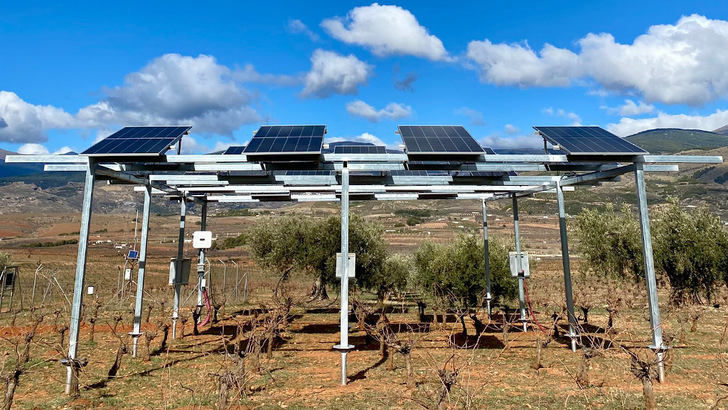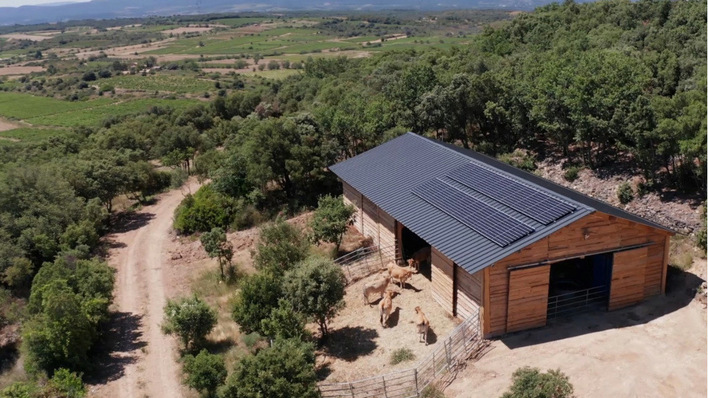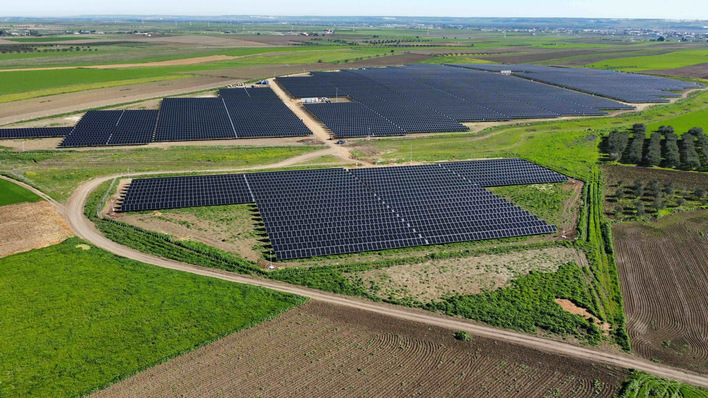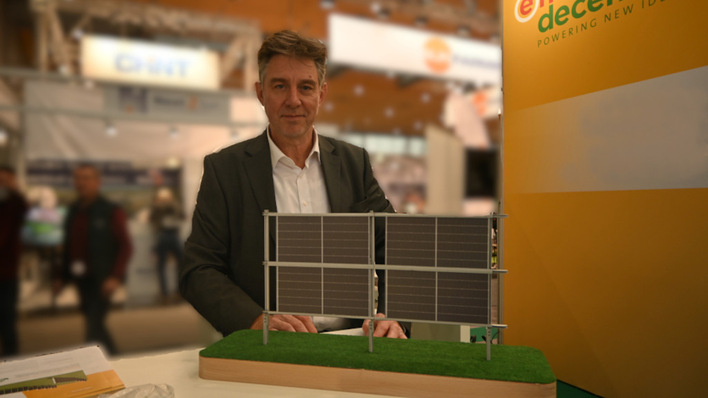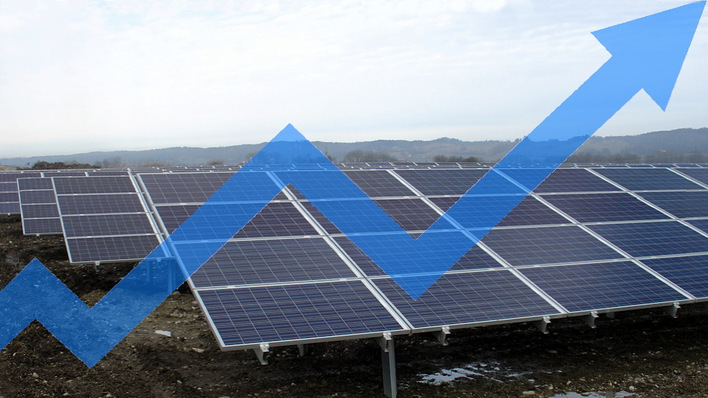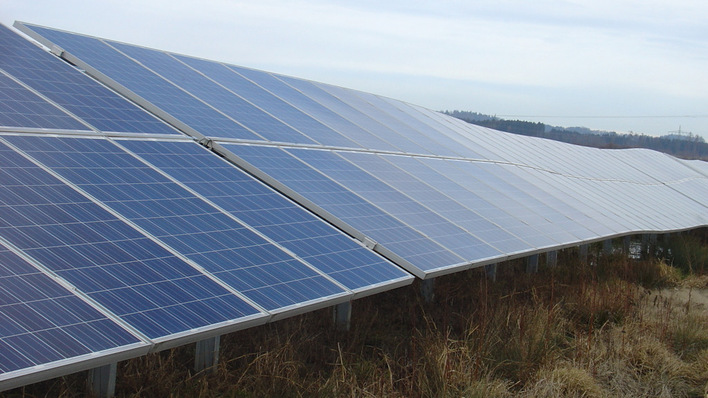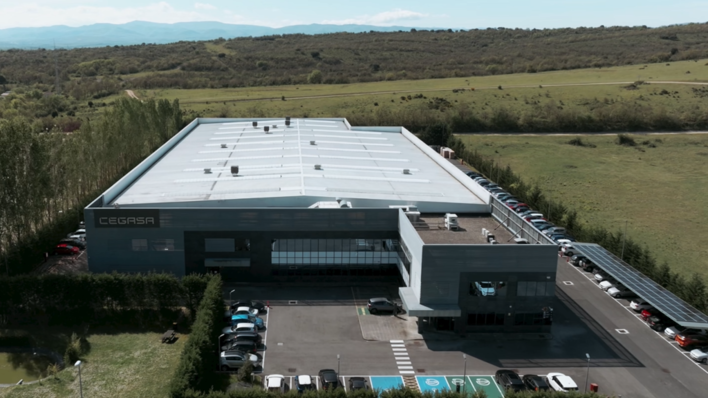Together with project developer Bettergy, the German Aerospace Centre (DLR) has installed a small agri-PV system in the Spanish province of Almería. With the installation on the organically farmed vineyard of Cortijo el Cura, the project partners want to test how the solar roofing affects the yields and quality of the wine. Among other things, this also involves measuring water and energy efficiency in viticulture.
Making the water balance more efficient
The system integrates solar energy with sustainable, organic viticulture. In addition to generating electricity, the solar modules also provide shade and improve the efficiency of water utilisation on site. This is particularly important in the Almería region, where the risk of drought is immense. The shade provided by the solar modules reduces evaporation and ensures a harmonised water balance. The project partners want to use the system to gain valuable insights into the combination of photovoltaic technology and agriculture.
Farming meets PV in our dual harvest special
Semi-transparent modules used
The 18 solar panels, arranged in a chessboard pattern, cover an area of around 120 square metres. The project partners have used semi-transparent modules. These let 60 per cent of the sunlight through to the vines. As a result, they provide sufficient light for the vines, combined with partial shading. The vineyard grows Merlot grapes under the solar modules. The installed capacity totals 10.8 kilowatts. The electricity yield is used directly on site.
Sensors collect a wealth of data
To evaluate the effects, DLR researchers monitor plant growth, soil conditions and meteorological parameters using a wide range of sensors. The data collected is compared with a reference area. This enables the researchers to precisely analyse the advantages of Agri-PV in viticulture.
Gil Kroyzer from Solargik: “Modularity enables adaptability in different terrains”
Monitoring climatic developments
The findings from this project will help to analyse future climatic developments and their impact on the efficiency of agri-PV systems. In addition, the research also provides valuable data for evaluating the potential of such systems in different climate scenarios. (su)


